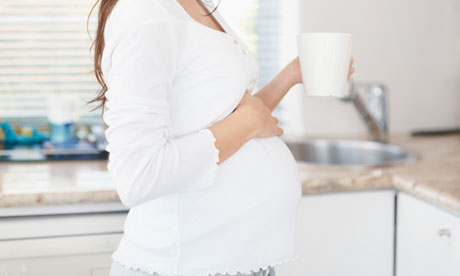
If you are pregnant there is so much you are advised not to do. You can't eat blue cheese, drink more than a sip of alcohol, or empty the cat litter tray. But perhaps worst of all, you should limit your coffee intake.
The UK Food Standards Agency-recommended daily dose of caffeine in pregnancy is 200mg, which equates to two cups of instant coffee, two mugs of tea (75mg each), six cans of Coca-Cola (32mg each) or four 50g bars of chocolate. A coffee from a cafe may be stronger: it could contain more than 200mg caffeine if it is made by a barista.
This week more evidence was published, from the Norwegian Mother and Child Cohort Study (more than 59,000 pregnant women have taken part in the research over 10 years), that caffeine reduces the birth weight of babies and increases the risk of having a smaller baby. Babies with lower birth weights have an increased risk of diabetes, high blood pressure and heart disease in adulthood.
The Norwegian researchers looked at all the sources of caffeine ingested by the pregnant women, including coffee, tea and fizzy drinks, along with cakes and desserts containing cocoa (which has lots of caffeine).
They took account of the effects of various characteristics of the women – whether they smoked, for example – and didn't include anyone with a serious medical condition. They found, unexpectedly, that coffee (but not caffeine from other sources) seemed to very slightly increase the length of pregnancy – by eight hours for those who drank 100mg of caffeine (from coffee) a day. So if caffeine may make your baby weigh less and even take a few hours longer to arrive, should you ditch it altogether?
The solution
Some previous studies have shown (although by no means unanimously) that women whose caffeine intake was more than 300mg a day have a higher risk of giving birth to lighter babies (100-200g lower than those of women who don't have much caffeine). This study finds an effect at 200mg a day.
Caffeine takes longer to be broken down in the body during pregnancy and it reaches the baby through the placenta. The developing baby is not great at processing caffeine and it can increase the baby's levels of stress hormones.
This latest study found that babies of women whose caffeine intake was 100mg a day had birth weights of 21 to 28g less than babies of women who didn't have as much.
These effects are not that big and no one should worry if they have had more caffeine than the guidelines recommend. But since caffeine does not benefit your baby and you can switch to decaff anyway, you might choose to lay off the stuff for nine months.
Find out more
The Guardian: Pregnant women urged to give up coffee
NHS: Foods to avoid during pregnancy
Mumsnet: Pregnancy dos and don'ts
BBC: Healthy eating for conception and pregnancy

